Discernment & Racial Justice: A Q&A with Teresa Marie Cariño
BY ISN STAFF | January 14, 2020
ISN spoke with Teresa Marie Cariño, director of parish faith formation for St. Ignatius Parish in San Francisco, CA. Teresa has been instrumental in the development of a parish project, open to the public, entitled Discernment Series: Racial Justice. This project utilizes the Spiritual Exercises of St. Ignatius as a framework for discerning how one can work for racial justice in their life. Read our Q&A with Teresa below, and register for the email-based program, which runs from January through Pentecost, here.
You can find additional racial justice resources here on ISN’s Racial Justice page.
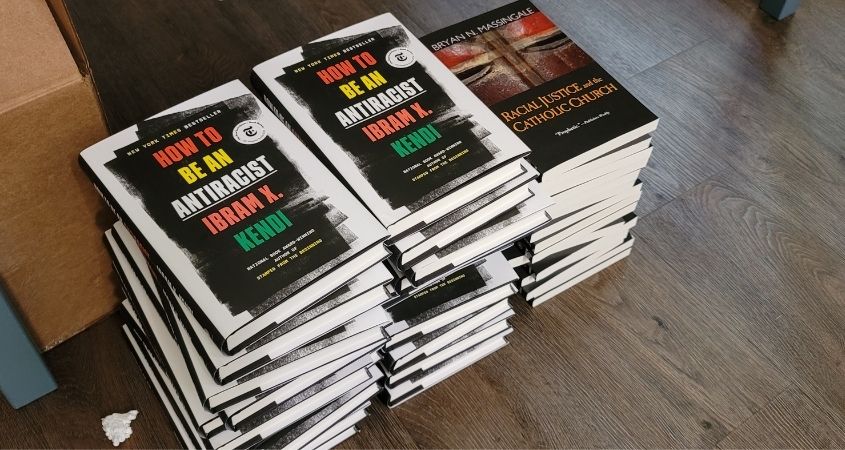
What led you and St. Ignatius to develop this program?
In light of the killings of George Floyd and Breonna Taylor last summer, we convened an antiracism committee and set out developing a strategic plan to address racism in our church and assess ways we can work toward racial justice in our community.
There were many ideas for action that were being thrown around, but we recognized the need to first educate ourselves then theologically reflect before acting. Too often, good intentioned deeds lead to negative unintended consequences.
One of the Faith Formation Commission leaders noted that to be an antiracist was to be a follower of Christ. It was also noted that working for racial justice requires conversion, a turning of our hearts. Therefore, there was a need to discern how we, as individuals and a collective, could work for racial justice in our lives.
Being a Jesuit parish, our initial inclination was to turn toward Ignatian Spirituality, specifically St. Ignatius’ Spiritual Exercises. The more we prayed and discussed the project, the more it made sense to pair the Exercises with education on racism.
Who is invited into this program? How do you see it being used by participants?
Anyone who is ready to learn and open to the Spirit to undergo the deep work of spiritual transformation for racial justice is invited to join the program.
Our newsletter will go out twice each week. One is an education newsletter to dive into conversations about race and racism. Then the second newsletter contains a prayer or meditation from the Spiritual Exercises. Our hope is that participants will deeply engage both newsletters.
We are currently working on creating a facilitators’ guide for communal discernment and reflection for institutions or small groups who want to use our program in a group setting.
Can you tell us about St. Ignatius Parish’s history with racial justice work?
When George Floyd was killed last summer, it sparked in us the need to openly talk about racism. Out of mourning and in prayer, Fr. Greg Bonfiglio, our pastor, led our parish in a moment of silence and kneeling for over 8 minutes, the length of time that the officer’s knee was on George Floyd’s neck. Discussions about racism and racial justice began to sprout up within our parish. As a parish staff, we recognized the need to have an open and honest discussion about racism, beginning with our parish leadership. With our parish council, leadership commissions, and staff, we held listening and reflecting sessions. Together we read Bryan Massingale’s Racism and the Catholic Church and Ibram X. Kendi’s How to Be an Anti-Racist. Then we established an antiracism committee and started work to create an anti-racism strategic plan to address racism in our own parish and work toward racial justice for our whole community.
How does this series, and the work of racial justice, relate to the Gospel, and to Ignatian spirituality?
Roger Haight describes Ignatian spirituality as consisting “in a radical commitment to this world and the people in it, on the conviction that the very actions that carry out that commitment are responses of love to the God of love that is within it all.” The killings last summer held up a mirror to the United States, and beyond, and we can no longer look away. That mirror showed us that Black lives are callously being extinguished either by police brutality, by COVID, by the prison industrial complex. In learning about the lives of George Floyd and Breonna Taylor, it also showed us that Black joy, Black dreams, Black flourishing matters. So a radical commitment to this world at this time means to commit to racial justice and the flourishing of all peoples.
As for how it relates to the Gospel and Ignatian spirituality, well, you have to sign up for the program…
What are you hoping to see as an outcome of the series?
My hope is that each person who goes through the series commits to one action. Maybe it’s a commitment to join a local organizing chapter that works for racial justice. Maybe it’s bringing the conversation to their own parish or their workplace. Maybe it’s committing to reading only authors of color or intentionally supporting Black owned businesses. Maybe it’s a commitment to keep on learning. Then maybe, through our individual actions, we can have a collective impact. We can actively participate in co-creating the Kingdom of God where all are welcome, all are dignified, all are loved.

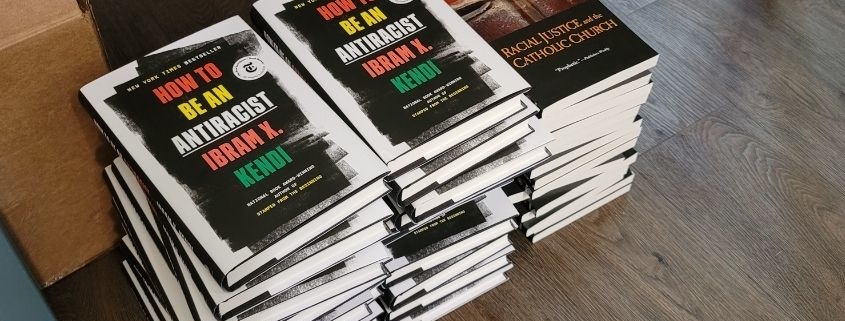

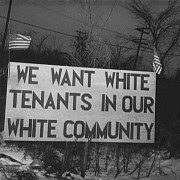


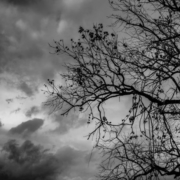
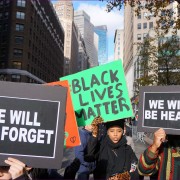

I’m already part of a anti-racist program at a college where I coach, that actually includes every race….
I also don’t agree that a anti-racist program should be setup just highlighting one race has this can be seen to outsiders has a form of favouritism which may lead to something that is meant to help been problematic.
Before anyone says “Any race can do this”, no this is not true if you are white and I should know due to colleges rejecting them because they don’t want the bad media or publicity, it’s been rejected 7 times in 2 years where I work and I’ve heard it happening at other facilitys.
( It was only concentrated on anti white racism which again is wrong just like this program )
Anti-racism should include every race known to man that is the true definition not excluding others even a child knows this and I would expect more especially from somebody that MAY have dealt with some form of discrimination.
I agree that some justice should exist but not justice that is heavily biased in one race whilst other races are experiencing the exact same issues but it does not gain media attention or public figures attention because they would lose face.
We all know that in reality only God can truly judge us.
For dreaming and doing noble deeds, Saint Ignatius continues to inspire men and women of goodwill across Planet Earth, our common home.